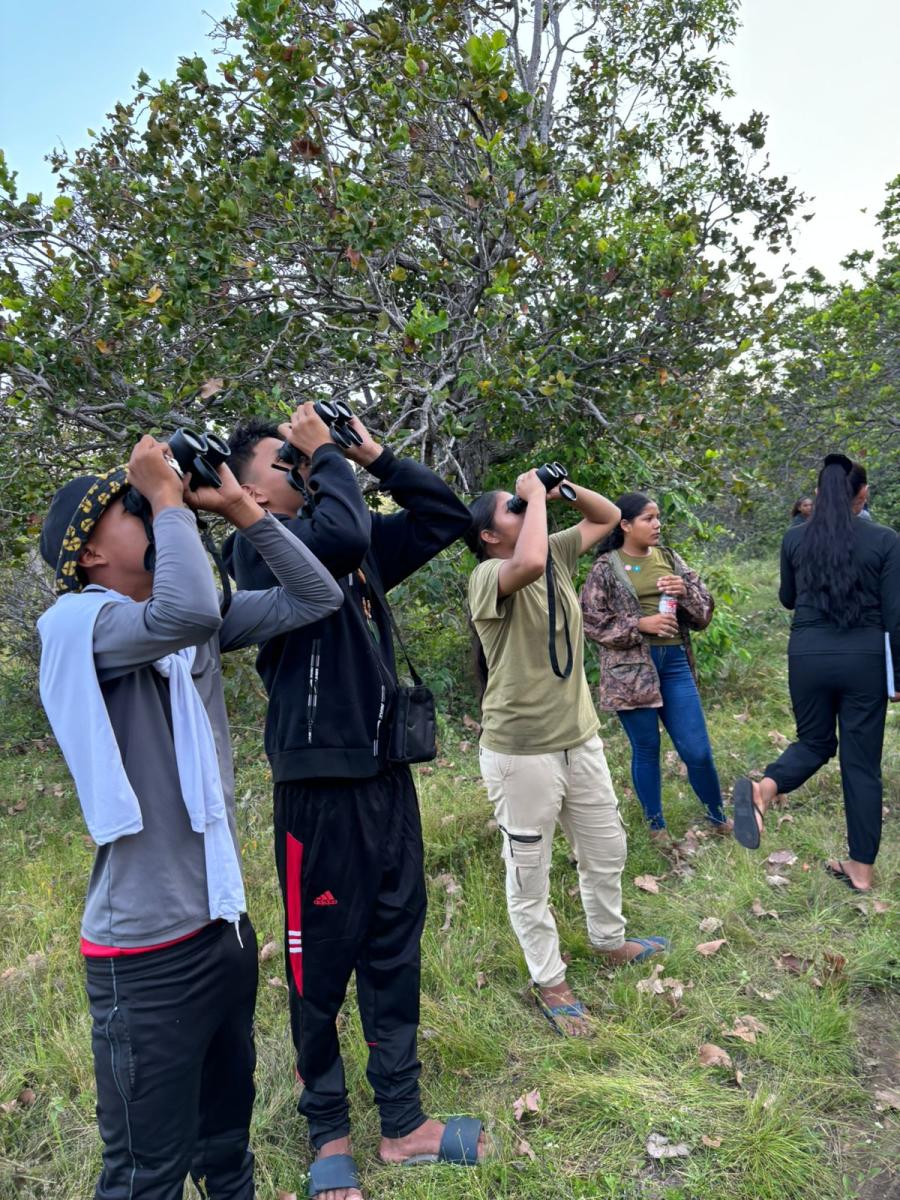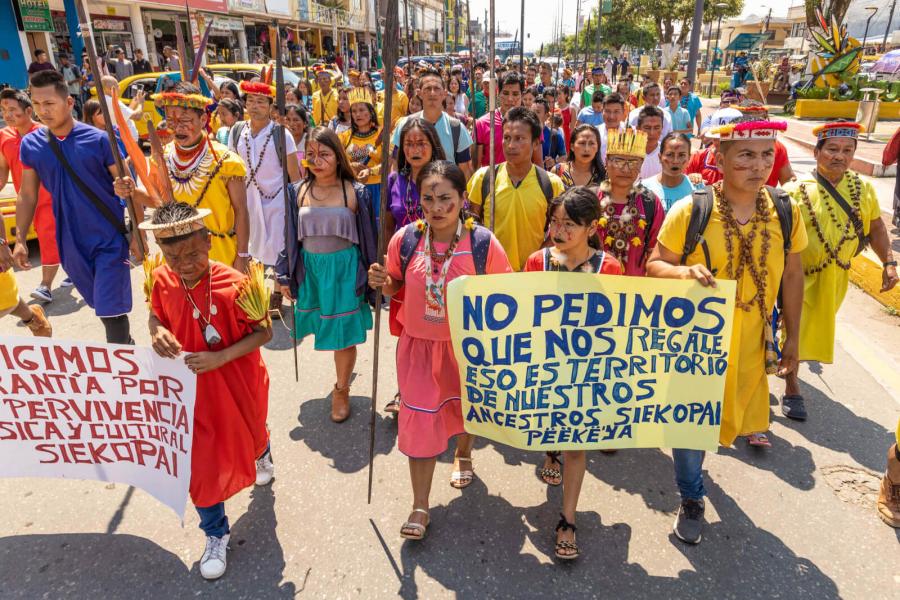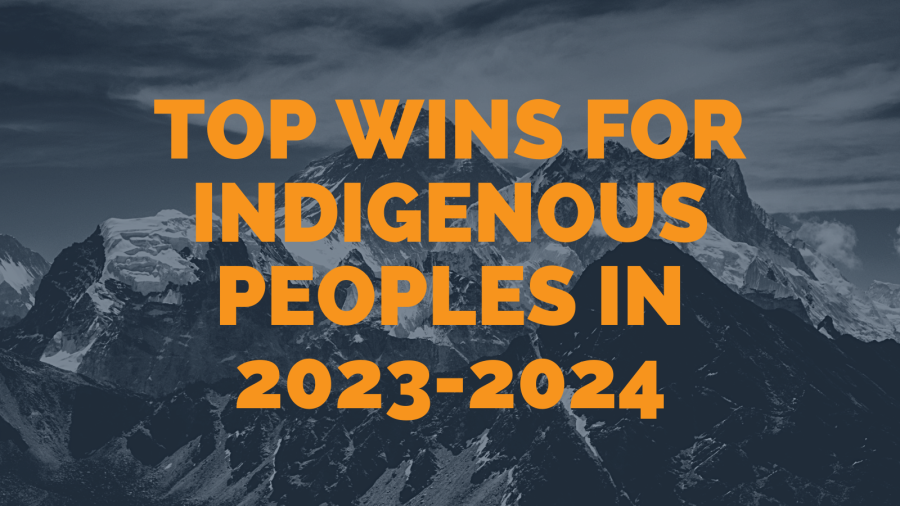
The key outstanding issues and opportunities for Indigenous Peoples were highlighted in a briefing prepared by Forest Peoples Program in advance of the Doha negotiations. The negotiations in Doha could potentially open space for decisions on rights-based safeguards information systems; valorize traditional knowledge and direct engagement of Indigenous Peoples in monitoring REDD+ activities on the ground with their own systems; address key threats to Indigenous Peoples’ rights in the discussion on drivers of deforestation, and; reiterate the urgency of a broader approach to mitigation in forests by taking into account non-carbon values. Contrary to initial expectations, however, the negotiations on REDD+ suffered from the overall atmosphere of tension that unexpectedly developed in the two negotiating tracks that had to conclude their work in Doha. The first had to decide how to conclude its work on the Bali Action Plan on adaptation, mitigation, finance, capacity building, shared vision, technology transfer, the other had to negotiate the Kyoto Protocol and its extension to a second commitment period. Again issues of contention were the relationship and balance between clear commitment for emission reduction by developed and developing countries, the amount of financing for Climate action, and the different views on monitoring, reporting and verification. In fact, the REDD+ negotiations also witnessed an unprecedented level of conflict between Brazil and Norway, especially on the matter of verification and financing. Norway is not willing to provide any financing for REDD without a high standards for verified carbon emissions, while Brazil and others were not open to adopt high standards without sufficient financial support. Nor were Norway and Brazil willing to accept any external international third party verification. Such a tense situation also affected the negotiations at the LCA although the outcome has been different. At the LCA, that concluded its work plan by deferring some topics to established committees and institutions, no agreement was met on REDD financing. This outcome was not completely unexpected. The same divergences among parties were also experiences in Durban (site of the last UNFCCC in 2012) and attempts had been made to progressively come to some common ground by convening a workshop, which was held in Bangkok in September 2012. The workshop did not overcome differences of views on sources on financing, the operationalization of results-based payments, nor the institutional architecture for REDD financing. Indeed the spillover of the conflict at SBSTA was felt there too.
In SBSTA the negotiations de facto collapsed and no final decision was agreed, with a draft bracketed text that has been deferred to the next SBSTA (June 2013) for further consideration. On the contrary, at the LCA, a final agreement was met to launch a one-year work programme on REDD financing under the COP, that will consist of a series of workshops and production of draft decisions for the next UNFCCC Conferences to the Parties 19 to be held in Poland. The COP did not set up any REDD committee , as requested by Papua New Guinea and the Coalition of Rainforest Nations, but a work programme to keep the negotiation channel open, outside of the Durban Platform for Enhanced Action, that according to some observers might contain a broad section on land use, including REDD+. The workprogramme will discuss how to achieve the objective of improving effectiveness of finance for REDD+, and to address methodological issues related to non-carbon benefits. SBSTA did not conclude its agenda item and deferred any further action to the next SBSTA meeting in mid 2013, when it will continue its work on methodological guidance related to modalities for a national forest monitoring system and for Monitoring Reporting and Verification, timing and frequency of the presentation of the summary of information on how safeguards are addressed and respected and further guidance to ensure comprehensiveness and transparency of information. As well as continue consideration of issues related to drivers of deforestation.
Other issues that will be relevant for Indigenous Peoples will emerge in the upcoming negotiations in the Durban Platform for Enhanced Action that will now represent the key negotiating track towards the agreed goal of adopting an overall binding agreement on emissions reductions in 2015. In particular, efforts will have to be made to ensure that the new agreement can fully take into account the centrality of a rights-based approach to climate change. It should be noted that the Cancun Conference of the Parties adopted a decision that for the first time draws a linkage between climate change and human rights. As a matter of fact the preamble of the COP decision reiterated the need to ensure the full and effective engagement of affected stakeholders, such as indigenous peoples, in any climate related programme and action, as well as the need to ensure that these do not adversely impact their rights.
These innovative elements, as well as the unprecedented reference to international instruments such as the United Nations Declaration on the Rights of indigenous Peoples (UNDRIP) will have to be retained and reiterated in any outcome of the Durban Platform. In particular, indigenous peoples have spelled out the three pillars on which any climate change policy and programme will have to be based, notably the recognition of the rights of indigenous peoples in accordance to international standards and instruments such as the UNDRIP, including Free, Prior and Informed Consent, the respect of traditional knowledge and recognition of the key role of indigenous peoples in adaptation and mitigation, and respecting their rights to full and effective participation. In the meantime, negotiators will have to deal with the aftermath of the Doha negotiations that were rescued at the last moment by the COP presidency by forcing an agreement on a so-called Doha Climate Gateway, composed of three key elements that prevented the definite collapse of future talks. The Kyoto Protocol was extended to its second commitment period, the unprecedented recognition of the so-called “Loss and damage”, notably the right to seek compensation for damage caused by climate change, and the commitment of developed countries to disburse a volume of climate finance equal at least to the average of what had been disbursed in the last three years.
Indeed, the issue of financing and of the institutional architecture to deliver climate finance will be key in 2013. As a matter of fact, the Green Climate Fund, that has been established in the Durban Conference of the Parties will hold a series of key Board meetings in the current year with the purpose of developing modalities for engagement of stakeholders, application of safeguards to its activities, modalities for funding, and its business plan. Indigenous peoples have engaged in the past Board meetings in order to reiterate their calls for full and effective participation. Amogn others, Indigenous Peoples urge the GCF to recognize them as active observers in the Board meetings, in line with other international climate programmes such as the UNREDD, and the Climate Investment Funds, set up an Indigenous Peoples Advisory Body, and ensure access to financing in order to be able to participate in Board meetings Moreover, any safeguard system will have to be anchored to a rights-based approach and to international human rights obligations and instruments such as the UNDRIP, and to a solid compliance and monitoring system. Indigenous Peoples also urge the Green Climate Fund to set up an Indigenous Peoples Fund that would be directly accessible to support mitigation and adaptation projects and programmes designed, developed and implemented by Indigenous Peoples. Given the agenda of negotiations at the UNFCCC, and the still existing stumbling blocks that might shrink space for innovative proposals, the Green Climate Fund might turn out to be a potentially useful opportunity to further develop criteria and policies on Indigenous Peoples, to ensure that any implementation of existing and future climate-related policies and programmes is fully consistent with international obligations and fully respect Indigenous Peoples' rights.



